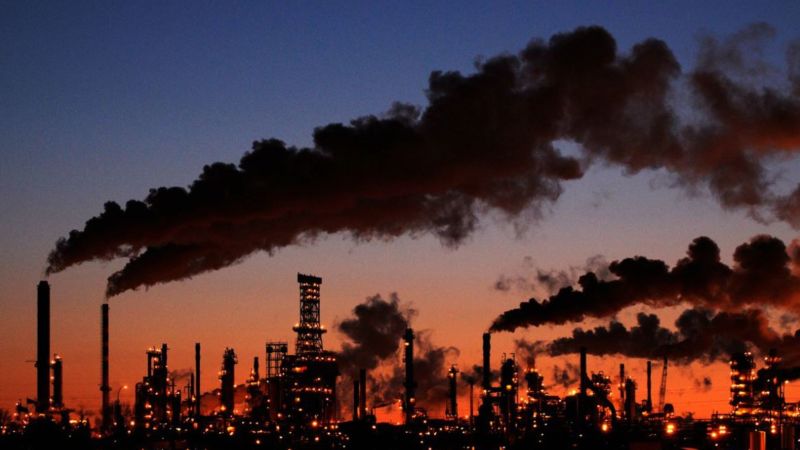This year on Earth Day, Thomson Reuters announced that it is ahead of schedule on its climate change targets
In 2020, global emissions were reduced by 6% and yet the United Nations report on progress against the sustainable development goals makes disheartening reading. The section on climate opens “the world is way off track to meet the Paris Agreement target, signaling cataclysmic changes ahead.”
To limit warming to 1.5 degrees, the world must reduce emissions by 7.6% every year from now. In other words, we’ve made progress, but not enough, and much of it was driven by a global pandemic.
How should we — as citizens and business leaders — react to that data? Should we down tools and give up? This week, with all the noise surrounding Earth Day, I aim to resist pessimism, encouraged that competition is intensifying and the pace of technological breakthroughs is quickening. I also recommit to resisting complacency. It is still very much time for action.
Today we share that Thomson Reuters reduced emissions by 93% from 2018 and is ahead of goals set for the Science Based Targets Initiative, which our CEO and leadership set shortly after the World Health Organization declared COVID-19 a pandemic, when climate change would have been easy to dismiss as a far-off threat. We are now aligned to the 1.5-degrees pathway, along with more than 660 companies at latest count.
It is good to make progress — by paying a premium for the limited renewable power available in the grid, we are creating demand for more to be produced, which will stimulate further demand and innovation. Officially, we are now carbon neutral, but embedding reductions in how we operate will be much harder, so that is the conversation we are having — and why we are working with our vendors to help them lead, summarized in our supplier sustainability statement.
This year on Earth Day, we aim to resist pessimism and are encouraged that competition is intensifying and the pace of technological breakthroughs is quickening.
People sometimes ask how relevant climate is to Thomson Reuters and our customers. Our business is focused largely on legal, tax and media professionals. We don’t directly operate in the most carbon-intensive sectors like energy, transportation, or agriculture. Even so, the question is baffling. Climate action is about global well-being. If this last year has not shown us that our global economies, health systems and futures are intertwined — mutually dependent regardless of national borders — what will?
Hundreds of thousands of our business customers are at the heart of whether progress will or won’t be made on any difficult topic. Legal systems hold us all to account. Taxation systems fund national and international action. Global, independent journalists arm people with hard facts and report on the pace (or absence) of action.
We aspire to power the world’s most informed professionals as one of the world’s leading content-driven technology companies, so we should also look to other businesses. Huge companies — Microsoft and Amazon to name two — are engaged in a race to reach net-zero carbon emissions.
Microsoft said that it would become carbon negative by 2030, aiming to remove more carbon than it emits each year. Amazon, not historically known for its focus on climate, created a $2 billion fund to drive climate innovation and set out to achieve zero emissions by 2030.
You can hardly blink for companies upping the ante. In just the last few days, JP Morgan said it would commit $2.5 trillion to climate action and sustainable development in the next 10 years. Power companies are advocating for cutting emissions in the U.S. by 80%. Apple just created a fund for working forests.
Sceptics say, “too little, too late,” but action matters. Data disclosure is now commonplace and most companies and have published plans of action. They are responding to customer and consumer concern — Yale recently published new research estimating that more than 70% of people living in the U.S. think climate change is happening and will harm future generations.
As you track business sustainability, you’d be forgiven for feeling lost at times for how to interpret all the information. Efforts to make that simpler are underway. Our customers — EY, Deloitte, PWC, and KPMG — have accelerated their collaboration to simplify Environmental, Social and Governance (ESG) reporting and make it more transparent with the World Economic Forum and the International Business Council.
It’s great to see competing businesses, working together. Initiatives like the Chancery Lane Project are gaining traction. It is a collaborative effort that Thomson Reuters employees helped found for lawyers to develop new contracts and model laws to help address climate change.
None of this was the case a decade ago, so we believe there’s reason for optimism.
However positive you may (or may not) feel this week, we will continue to convene experts, explore the toughest questions — and keep professionals informed. In June, Reuters will host a global gathering of leading climate experts and business leaders. Join us.
For more information on Thomson Reuters commitment to Earth Day, learn how to take part in the Reuters Sustainable Business summit; or read Reuters eye-opening piece “The Hot List” revealing the scientists dedicated to climate; or read more about Thomson Reuters work in sustainability, community engagement, and driving access to justice and transparency in the company’s 2020 Social Impact Report; and view Thomson Reuters’ supplier diversity & sustainability statement.







